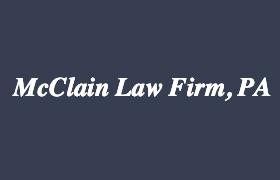Marathon Estate Lawyer, Florida
Sponsored Law Firm
-
 x
x

Click For More Info:
-
McClain Law Firm, PA
P.O. Box 536387 Orlando, FL 32853» view mapEstate Law A Law Firm That Cares
Let McClain Law Firm, PA handle all your Estate Planning needs today!
800-908-6270
Christopher Benedict Waldera
International Tax, Government, Estate Planning, Business
Status: In Good Standing Licensed: 36 Years
David Lawrence Manz
Gift Taxation, Family Law, Child Custody, Property & Casualty
Status: In Good Standing Licensed: 40 Years
Jeffrey Lee Wilderson
Commercial Real Estate, Real Estate, Wills, Trusts
Status: In Good Standing Licensed: 17 Years
Kathleen Hendrickson
Commercial Real Estate, Trusts, Guardianships & Conservatorships, Elder Law
Status: In Good Standing Licensed: 41 Years
Lesley Ann Rhyne
Commercial Real Estate, Estate Planning, Family Law, Business
Status: In Good Standing Licensed: 35 Years
Michael D. Solomon
Real Estate, Litigation, Estate Planning, Family Law
Status: In Good Standing Licensed: 48 Years
Robert Kenneth Miller
Estate Planning, Child Custody, Elder Law, Commercial Real Estate, Trusts
Status: In Good Standing Licensed: 42 Years
 Timmy McClain Orlando, FL
Timmy McClain Orlando, FL AboutMcClain Law Firm, PA
AboutMcClain Law Firm, PA
